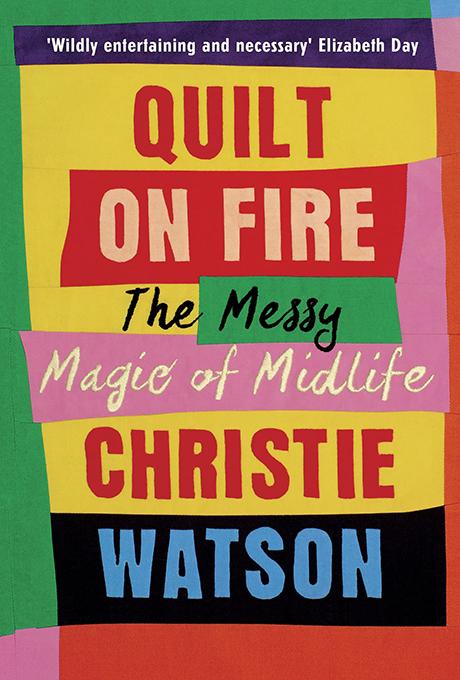
Savouring each sentence as though it had been written just for me, I devoured Christie Watson’s midlife memoir. Literary, gritty, joyful and very, very funny, reading Quilt on Fire is like hanging out with a best friend, one who knows you so well that she can see inside your soul.
“I am invisible,” she begins – the opening line to end all opening lines, and a sentiment to which I can strongly relate. Countless times recently I’ve left my house for a night out feeling sexy, sassy and hot (not menopausal-hot, to be clear) – only to find, a couple of hours later, a cursory glance towards a harshly lit mirror in a club bathroom confirms my worst fear: I’m getting old. In the 2000s, I’d walk into a room and notice being noticed, and yet when I go out these days, it’s like auditioning for the lead role in The Invisible Man. I too feel invisible.
In her first chapter, a messy, swollen-eyed crying Watson, who once worked as an intensive-care nurse at Great Ormond Street children’s hospital, describes how she’s “never really been a crier”. And yet, here she is, a sobbing wreck in Sainsbury’s. “In a full, busy car park, I feel very alone. And just wrong somehow. I feel like I’m floating outside my own skin, looking down at myself, but all I can see is a faint outline, a shell, emptied of organs, vacant”.
Heat pulsing through her, Watson ends up jamming her entire body into a supermarket deep-freezer that’s half-filled with fish fingers. (I half choke as a sip of water gets in the way of a loud laugh.) Seemingly oblivious to Watson, a man opens the freezer door immediately beside the one she’s climbed into. Wedged up close and personal with several packets of fish fingers trying to cool down, even in her hour of need, she is ignored. Luisa, Watson’s new therapist who makes an appearance early in the book, suggests the 46-year-old’s anxiety could be down to hormonal change. She has hit early perimenopause – common for women who, like Watson, have worked night shifts.
I happened to be at the hairdressers, having my perimenopausal mop faffed with for hours, when I started reading Watson’s book. For the next three hours, not one single word left my mouth, unusual for a woman who’ll natter to anyone within two feet. And “three hours” is not a typo – that is how long it now takes to transform my hormonally challenged locks.

Forgive my vanity, but to me hair extensions are as essential as the HRT I slather across my upper thighs each and every morning. That’s midlife for you. Brain fog, anxiety, forgetfulness: Watson’s description of perimenopause creeping over us like ivy suffocating a garden fence, leaving us terrified, assuming we’ve lost the plot, is Virginia Woolf-sharp.
Watson may have set sail for the choppy seas of midlife, leaving behind the calm rivers of youth forever, yet her sardonic, generous prose carries a story imbued with hope and joy, as opposed to one of sadness and regret. A story of female agency, finding a renewed sense of self and purpose as we age.
Watson’s final few lines, as poignant to me as her first, refer to a picture hanging on the wall of her therapist’s office: a Hokusai wave. Describing the end of a new beginning, Watson observes she is “not the fisherman in the boat, clinging on for dear life, but the wave itself”. For women drowning in the deep, uncharted seas of midlife, this is book is for you. And for me.
The Daily Telegraph












